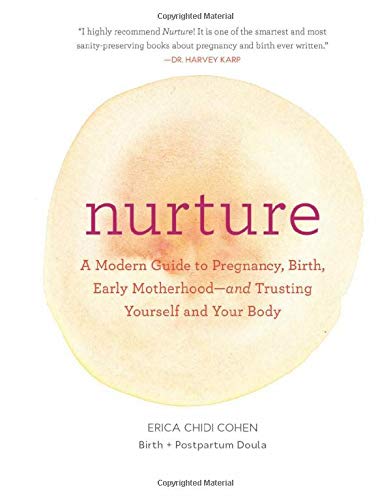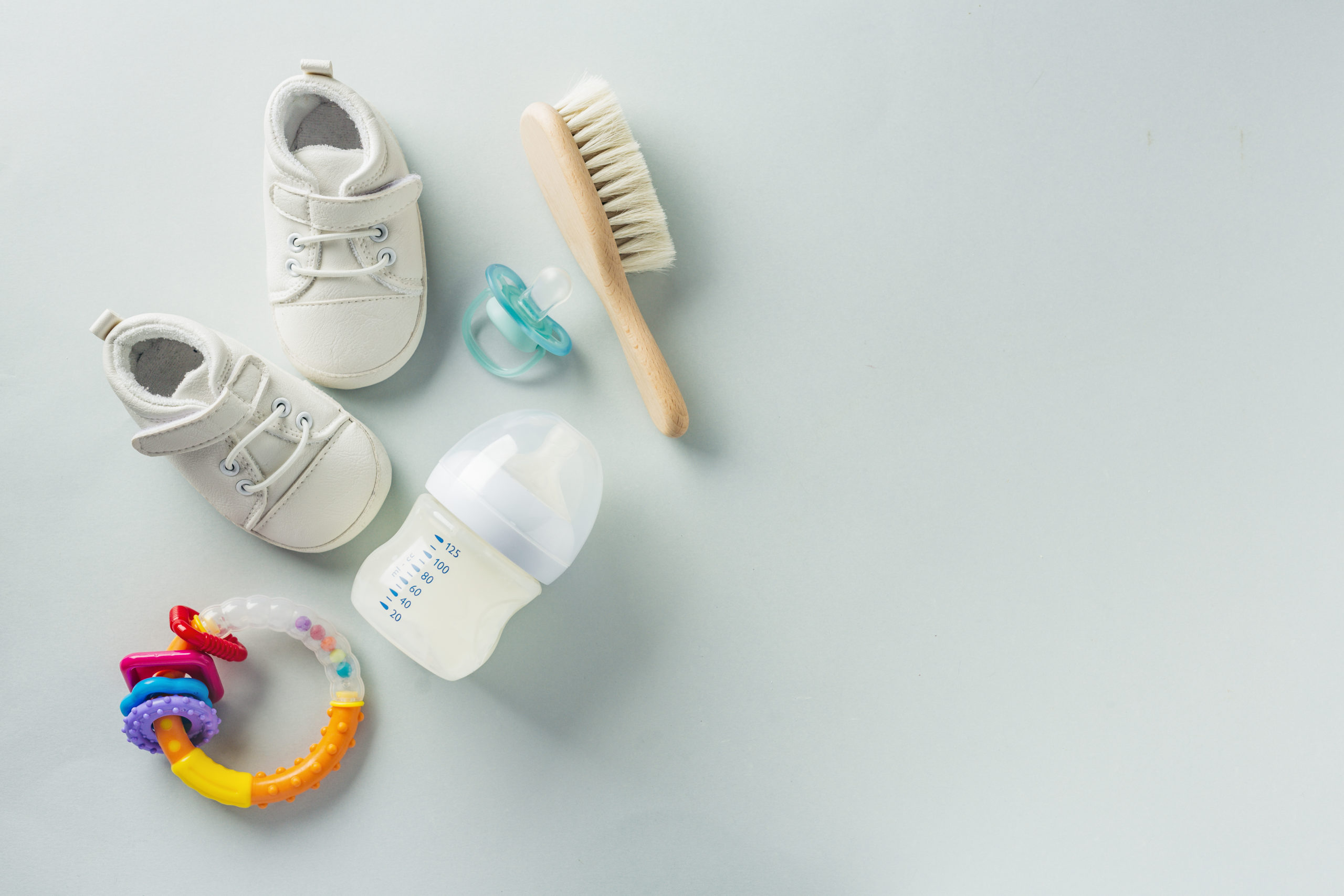Moms, there are so many things to do before the baby comes. You’ve been prepping for your little one, and now that the big day is almost here you’re feeling overwhelmed. You don’t know what to do first or where to start.
Don’t worry, we’re here to help! This blog post is a checklist of all the things you need to do before your little one arrives. You’ll find links with more details on how to complete each task in this comprehensive list that will guide you through what needs to be done.
We’ve got everything from cleaning out your closet and making space for the baby, finding childcare for when you go back to work after maternity leave – even hosting a baby shower! Let’s get started.
1. Write a birth plan
This is your vision for what you want to happen during labor and delivery. While we’re sure you’re excited about having a baby, you should keep in mind that it can be quite exhausting. There are lots of different things that might happen during your little one’s birth, but you can be in control of how you want to feel and behave while you’re going through it.
Being prepared and knowing what you want will help you feel more in control and reduce your stress. Here is a quick video on how to get started. We also have our very own tips.
Find out what you need to do with your maternity leave and work schedule
When you’re pregnant it’s important to be able to focus on yourself and your baby. But as a working mom, it can be difficult to balance work and family life. By planning ahead you can make your maternity leave more relaxing for yourself.
What you need to do is figure out how you want to deal with your work schedule and maternity leave. There are 3 options that most new moms use:
- Taking all the time you have available to spend with your new baby
- Splitting up the maternity leave so that you can go back to work for a period of time
- Not go back to work at all.
You should also think about what you want your work schedule to look like after maternity if you decided to go back that is.
Get some sleep! You’ll need it before the baby arrives
As soon as you start getting bigger and your belly starts to grow, it can be hard for you to sleep at night. But now is not the time to skimp out on sleep. In fact, research shows that moms who get the recommended amount of shuteye during their pregnancies have healthier babies.
What you need to do is sleep when your baby sleeps and get the recommended amount of rest during pregnancy. Figure out what your optimal sleep schedule is and try to maintain it by going to bed at the same time each night.
Pack all your hospital bag essentials
Having a baby is like packing for an extended vacation. And if you’re anything like us, you’re dreading packing because you have no idea what you need to bring. Let us help!
When packing for your hospital bag, it’s important to pack everything that you might possibly need during your stay. You never know what might happen or what you will feel like doing, so it’s best to be prepared.
Some things to remember when packing your hospital bag are:
- Sturdy walking shoes so you can get some fresh air before you go home.
- Comfortable and breathable clothes.
- Bring a book in case you don’t get to sleep at night.
Make sure you have your birth plan ready.
Your birth plan is important because it enables you to communicate your expectations to your medical team. You can let them know what type of pain relief you would like to receive and what positions you would like to be in during delivery.
You should also include information about who can be with you during labor and delivery because there are certain rules that can get in the way. For example, partners aren’t allowed to stay overnight at the hospital and parents aren’t allowed to stay overnight either.
Figure out what you need for your baby registry.
Your baby registry is a list of things that you need for your baby after she’s born. You can get everything from clothes and diapers to toys and books.
When you’re thinking about what you need to include in your baby registry, it’s best to start with the basics. You should think about what baby clothes you will need to bring home from the hospital and what diapers you’ll need for your little one to wear.
But if you want, you can also add items like a bouncer, baby carrier and bottles.
Make sure you have all the necessary equipment for breastfeeding (i.e., nursing bra)
If you want to breastfeed your baby, then it’s important that you’re well-informed about the basics. You should know how to properly latch your baby onto the breast and what you can do if breastfeeding isn’t going well at all.
You also should have a nursing bra on hand so you can nurse your baby instead of using bottles.
Create a list of friends and family members who are willing to help take care of the baby once they’re born.
Before your little one comes, you should tell your friends and family members which week they can expect to take care of the baby. The reason you do this is so they can plan ahead and prepare. You also should tell them if you would prefer for them to be at the house or not.
When you’re thinking about who your baby will stay with when you go back to work, it’s important you have a list of people that you trust and would like to help you.
strategize how and when you will tell everyone the baby is here! There’s no wrong way to announce that you’re having a baby, but it’s important to think about the best way for your family and friends to find out. You might want to invite them over for a party or you could choose to do it through social media.
2. Buy all of the necessary supplies – diapers, bottles, clothes, crib, sheets, changing table, car seat, and dresser
What to do when you leave the hospital with a new baby?
You have to buy diapers, clothes, and other supplies for your newborn. But what about diapers? You will need a lot of them during those first few days or weeks at home… And they don’t come cheap! That’s why it’s important to make sure that you have enough on hand before you go home from the hospital. Here are some tips for how many diapers to buy:
1) The average baby will use between 6-8 diapers per day
2) Buy one package of size Newborn Diapers
3) You should also get at least two packages of size 1 Diapers 4) And four packages of size 2 Diapers
5) This is going to be a long process. You might feel like you’re doing everything wrong and that it will never get better, but just keep working on yourself and your procrastination.
Baby Clothes
Buying clothes for your baby is one of the first things you’ll need to take care of. It might seem like a daunting task, but it’s not as hard as you might think! Here are some tips on how to buy clothes for your newborn:
1) Don’t buy clothes until your baby is born
2) You can find newborn outfits on sale or even for free at some places
3) Buy a lot of basics, like onesies and pajamas. These are items that your baby will wear all the time.
4) Use hand-me-downs and save yourself the money. Newborn clothes are expensive and babies outgrow them really quickly, so it’s best to buy them second-hand or borrow them.
Crib, Sheets, Blanket & Cushion
As soon as you know the gender of your baby, you should start getting things for your little one’s nursery. Since you will be spending so much time in there, it’s not a bad idea to start setting up your baby’s room early.
Make sure you have all of the necessary necessities for your baby crib, like sheets and a mattress!
You should also get a baby blanket to lay your baby on. If it’s cold, don’t be afraid to pile on the blankets. If it’s warm, try using a sheet instead if possible. You can also buy baby cushions or pillows if you want to make sure your baby is comfortable.
Make a list of everything that will be in your child’s room before you go shopping/start buying things.
Don’t try to go it alone! Get your spouse or friends to go shopping with you. Make a list and set a budget, then divvy up the tasks. You handle the furniture and decor, and your friend can go shopping for the clothes.
Prepare Toiletries – Shampoo, Soap, Diapers, Cotton Swabs
Once you have a list of the items you need, it’s time to go shopping! Make sure to buy towels and washcloths for your baby. You should also get shampoo, soap (liquid or bar), disposable diapers, cotton swabs for ear wax removal, and other miscellaneous
3. Make sure there is plenty of room
Before you bring your baby home, make sure there is plenty of room for the baby. It’s very important that there is adequate room for a crib, changing table, and dresser. But First, Coffee has a great video on Nursery Hacks every mom should know! Check it out
Set up a nursery or make space for it in an existing room of your house .
The baby’s room should be a calming place for your little one. Keep the colors light, avoid loud sounds, and decorate with paintings or prints that are in muted tones. You should also keep clutter to a minimum since babies can’t focus on multiple things at once. If there’s more than one story in your home, make sure there’s a safe way for you to get your baby from the top floor to the bottom.
4. Buy or borrow some books about parenting
Be sure to buy or borrow some books about parenting and what to expect as your baby gets older. This will be very helpful as you start to care for your baby and forge a relationship with him or her.
You’ll also want to choose some books about the facts of life and puberty, since it will be a subject that you’ll need to discuss with your child. The last thing you want is for them to learn about puberty from their friends or from television.
Nurture by Erica Chidi is a personal favorite.

5. Find out what type of child care arrangement will work best for your family
After you have your baby, you’ll need to arrange for child care. This can be a huge expense if you have to pay someone else to take care of you child, but it’s often possible to arrange free or affordable daycare.
If you’re a stay-at-home mom, then you won’t need to arrange for child care. However, if neither parent is available to take care of the baby, then you can either hire someone to stay with your child or ask a relative or friend. Sometimes churches will have daycare programs that are inexpensive or free.
6. Pack up any valuables before bringing the new baby home.
Make sure you’ve packed up any valuables before bringing the new baby home. Sometimes they can get into everything, so it’s best to keep anything small and valuable locked up in a drawer.
Ask your significant other if there are any valuables that should be moved out of reach just in case.
For example, if there’s a blender on the counter and you’re worried that your baby will try to stick their fingers in it, remove it until they get a little older.
7. Pick out the perfect name for your baby (if you haven’t already)
After you have the baby, it’s time to decide on a name for your little one. This can be a great bonding experience for you and your spouse. If you and your significant other can’t agree on a name, then you should pick one together. Don’t rush it – this is a very important decision.
8. Have someone experienced you can talk to
Pregnancy is a beautiful and exciting time in your life. But it can also be painful, frustrating, and exhausting. You need to know when you should see a doctor or nurse practitioner for pain relief.
We’re here to help. Our telemedicine services are designed to provide women with the care they need when they need it most. With our pregnancy starter kit, we can help ease your discomfort so you can focus on what matters most – enjoying this special time of your life.
You don’t have to suffer through another day of back pain or other pregnancy pains that make it hard for you to get around.
Click the button below now to learn more sign up with Help To Moms.


